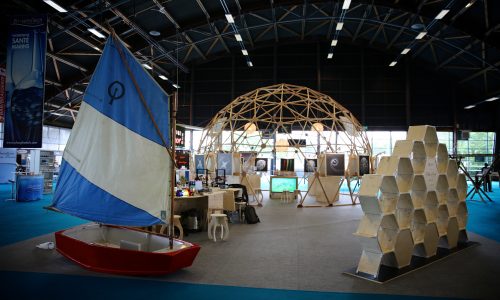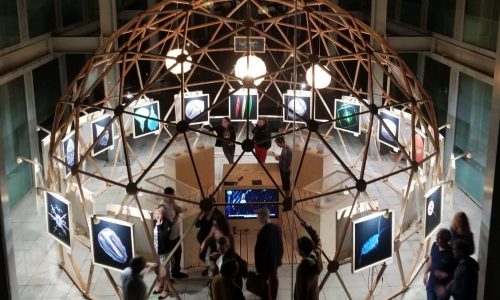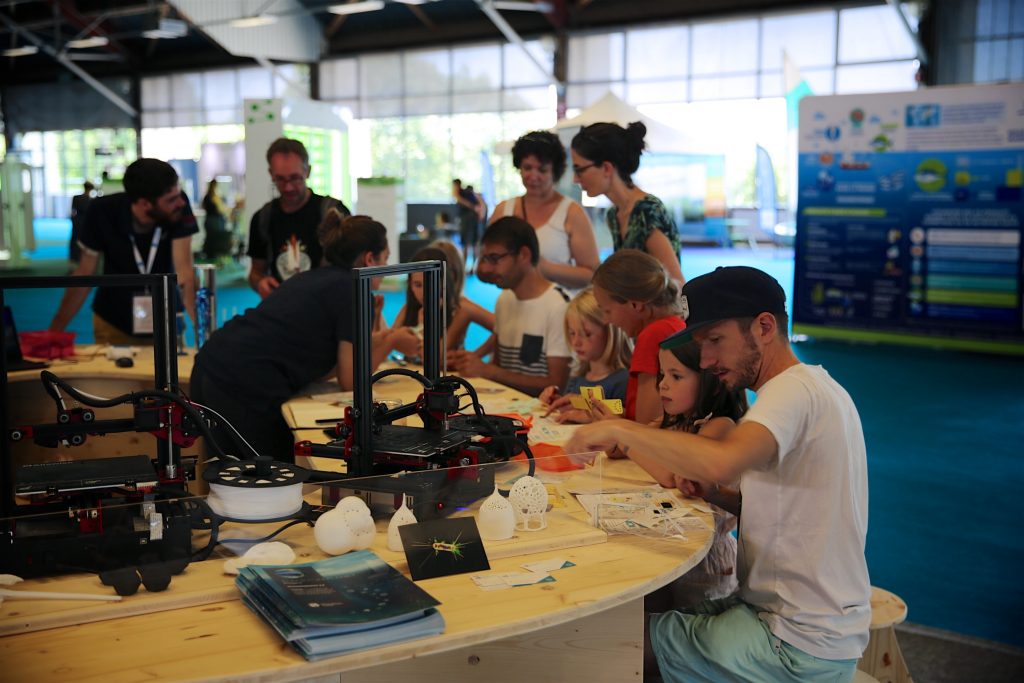12 Oct From Nantes to Barcelona, 2019 is the year of the… Planktonarium!
Plankton is rich in unsuspected biodiversity that we still know too little about. A new world opens to those who observe and discover it, in particular micro-organisms invisible to the naked eye, microalgae, bacteria and viruses. Plankton Planet brings together those who are interested in marine plankton. The initiative brings together scientists, sailors, makers, artists, children and all those who interested wish it. It has been developed alongside a hands-on exhibition for the public and a toolbox designed to allow citizens who are interested in plankton—referred to as planktonauts— to collect their own plankton samples from the seas around the world. They can then examine their own harvest before sending the samples they collected back to the lab for scientists to exploit in their own inventory of the global plankton fauna.
Marine plankton is part of our primordial ecosystem, the starting point of life and the Earth’s atmosphere; it plays a key role in the sustainability of our planet. The objective of Plankton Planet to help in covering, loving and protecting this imperceptible but essential world makes Plankton Planet a popular and participative project in the wake of the great work undertaken by the Tara team, renowned for their ocean research, and all the collaborators of this great scientific adventure.
In 2019, Plankton Planet launched its concept of “Plankton & Arts” and built the Planktonarium. This exhibition space gave the public an opportunity to discover the world of unicellular planktons under a wooden dome. This initiative offered planktonauts a simple low-cost toolbox effectively harvesting plankton samples and examining the variety of species in this mysterious microscopic world. The approach was presented in early July in Nantes, France, during a major exhibition called “La Mer XXL”, then in early October in Barcelona during the stopover of the Tara floating expedition boat.
The Plankton Planet stand at La Mer XXL in Nantes.
The exhibition illustrates the links of terrestrial life on all scales: from the atom to the planet, passing through the cell and … the plankton ecosystem. The entire exhibition is peppered with spectacular images, sculptures and videos. The oceans appear to host an unsuspected art gallery featuring planktonic species with incredible shapes, functions and diversity. These have been revealed by the painstaking scientific work of marine scientists.
Beside the exhibition dome, the most curious among children and adults had the opportunity to discover and play with small tools such as microscopes, plankton fishing nets and a 3D printer, that make it possible to see his invisible living world on a smartphone or a screen. Plankton Planet volunteers greatly enjoyed explaining how to use this toolbox, product of the interaction between scientists, makers and sailors. Its advantage is that it allows to collect plankton samples from a boat and view them before their mailing to the laboratory. Thus, once the planktonauts will be well equipped, the systematic analysis of plankton along the global seas will become possible. And this, at a low cost. As volunteers planktonauts send their samples back marine scientists are able to discover this invisible world as a whole and understand its dynamics and its evolution.
The Planktonarium at the Institute of Marine Sciences ICM – CSIC in Barcelona
The challenge to map out and understand the plankton is huge! Developing inexpensive, convenient and robust tools is not an easy task and takes time. But the tremendous interest shown by the public—among others by schoolchildren in Nantes as well as in Barcelona—provides to Plankton Planet an enormous motivation to continue its work. The human adventure at the heart of this project affords unprecedented levels of involvement from the public, who is ready to contribute to the project voluntarily success.
In 2020, the Plankton Planet aimed at validating the first generation of in-house tools so that those interested in studying the plankton,get a chance to discover it, see it and study it. You are welcome to follow us and participate in this adventure.
Many visitors were able to discover the world of plankton in Nantes.





